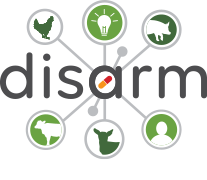444 – Mitigating Antimicrobial Resistance Risks When Using Reclaimed Municipal Wastewater for Agriculture (Research paper – Hong – 2020)
Click here for resource
444 Research paper
Mitigating Antimicrobial Resistance Risks When Using Reclaimed Municipal Wastewater for Agriculture by Hong, P. Y., Wang, C., & Mantilla-Calderon, D. 2020 Handbook of Environmental Chemistry 91: 245-265
In Significant Impact Groups: Water \ Water quality
Species targeted: Other;
Age: Not stated;
Summary:
Treated wastewater can be used as an alternative water supply to mitigate our reliance on nonrenewable waters. However, concerns related to emerging contaminants such as antibiotic-resistant bacteria (ARB) and antibiotic resistance genes (ARGs) can impede efforts to push for widespread use of treated wastewater in agricultural irrigation. This chapter aims to provide a better understanding of the potential concerns by first using case studies in two countries that have already practiced water reuse. Second, we collate and analyze data that suggests that wastewater treatment plants able to achieve at least 8-log reduction in microbiological contaminants may suffice as appropriate intervention barriers for ARB dissemination to the environment. It would be prudent to adopt the precautionary principle and to implement appropriate intervention strategies and best management practices that minimize the impacts and concerns arising from the reuse of treated wastewater in agriculture.
444 Research paper – Hong – 2020 – Mitigating Antimicrobial Resistance Risks When Using Reclaimed Municipal Wastewater for Agriculture
Where to find the original material: https://link.springer.com/chapter/10.1007/698_2020_473; 10.1007/698_2020_473
Country: Singapore
